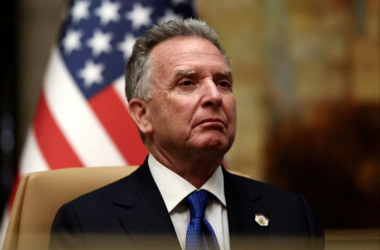U.S. President Donald Trump has announced the introduction of 25% tariffs on imported cars and reciprocal duties on all countries, sparking widespread discussions in American and international media.
Dubbed “Liberation Day,” this move, according to Trump, is aimed at strengthening the U.S. economy. However, experts warn of potential negative consequences for consumers and international relations.
The Independent reported that the new tariff regime will take effect on April 2, and Trump’s press secretary, Caroline Levitt, confirmed the president’s intentions in an interview with Fox News.
Yahoo Finance highlighted that the announced measures caused a sharp reaction in financial markets. Despite Trump’s confidence in their positive impact, experts fear rising costs for American consumers.
According to The New York Times, U.S. Treasury Secretary Scott Bessent called the tariff policy “a step toward reviving the American dream.” However, U.S. allies, including Canada and Portugal, expressed concern and began reviewing trade and military contracts with Washington.
CNN Politics assessed the tariffs as a risky move that could become a key factor in Trump’s campaign for a second presidential term. Political analysts note that in an era dominated by technology and services, a focus on protectionism may prove ineffective.
BBC recorded a sharp drop in stock market indexes following Trump’s announcement, though by the end of the day, the market had partially stabilized (Dow +1%, S&P 500 +0.5%, Nasdaq -0.1%).
Political tensions rise alongside tariff policies
Beyond tariff policy, political tensions in the U.S. continue to escalate. CBS News reported that Venezuelan migrants will lose their work permits on April 7, as well as Trump’s hints at the possibility of a third presidential term, which contradicts the Constitution. Reuters noted a Democratic Party lawsuit against Trump’s executive order on electoral system reform. Meanwhile, a court has temporarily blocked the administration’s decision to strip Venezuelans of deportation protection.
The economic and political consequences of Trump’s tariff policy are yet to be fully assessed, but it is already causing a significant stir both in the U.S. and abroad. U.S. allies are reassessing their relations with Washington, markets remain unstable, and the political battle between Trump and the Democrats is intensifying.




